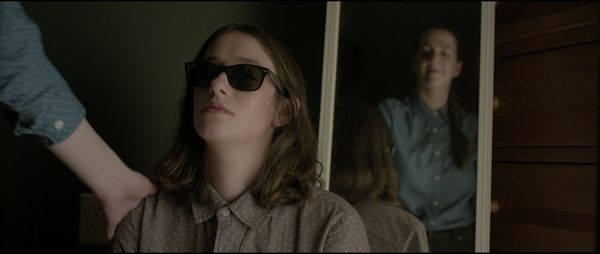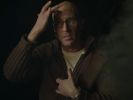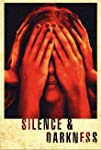Eye For Film >> Movies >> Silence & Darkness (2020) Film Review
Silence & Darkness
Reviewed by: Jennie Kermode

Anna (Mina Walker) and Beth (Joan Glackin) are just like any other pair of teenage sisters stuck at home on a long, quiet day. Beth wants to watch gymnastics on the television; Anna wants music. The latter has the more forceful personality and gets her way, so Beth, who is deaf, has to press her hands up against the set to feel its vibrations and follow what's happening. They discuss it with their fingers running along one another's forearms; signing is not possible for Anna because she's blind.
Deafness and blindness have some of the same causes so at first this situation doesn't seem all that unlikely. Neither does the fact that their father (Jordan Lage), a doctor, keeps them largely separated from the rest of the world, in his spacious country home. They were not completely cut off. People in the nearby village, which they visit on a shopping expedition, clearly know them and exchange friendly greetings. Knowing their environment well, the sisters navigate it with ease. Beyond that opening scene, there is none of the usual heavy-handed focus on difference that is usual in films with characters like these. Anna, in particular, is so confident that at times it would be easy to forget that she can't see.

With no subtitles used to reveal what the girls are saying to each other, the viewer is immersed in their world and also experiences a barrier much like those they might expect to encounter in wider society. What is being communicated is not obvious and it's necessary to pay attention to get the git of it. We will never know everything the girls gossip about (though it has commonalities, their system is not one conventionally used by deafblind people), but key concerns are clear enough from the urgency of their conversation, the expressions on their faces, and the movements dictated by a well structured script. Though it soon becomes apparent that their father is watching them a lot more that he acknowledges, keeping records of their behaviour, it's equally clear that he will never be privy to their intimate communications. Nevertheless, the three seem happy together and it's not until a neighbour visits the house making strange claims about something she's seen in the nearby woods that the viewer has reason to suspect something might be seriously amiss.
One of those smart first feature concepts ideal for shooting on a low budget, Silence & Darkness centres on a single location and uses character dynamics to drive the plot rather than setting up a more demanding storyline. This has given writer/director Barak Barkan the chance to focus on his actors and on the technical aspects of production, resulting in a polished piece of work. it's beautifully framed, making great use of a house whose large windows and softly reflective wooden floors allow light to flow freely. Family scenes take place in the centres of large rooms, creating a sense of uncertainty, a subconscious awareness that there might be something significant just out of shot which echoes the girls' growing discomfort. Scenes with just the two of them, however, take place in the corners and nooks that children quickly identify in the places where they grow up - places that feel safe, less clearly the domain of adults.
The film tells its story slowly, trusting the viewer to pick up small clues and occasionally resorting to more obvious ones. Why must the girls continually take medicine with no explanation of what it will do? What happened to their mother? A situation which might once have been stable is starting to break down as they reach the age where questions come to seem more urgent. Anna is beginning to assert herself more forcefully. Beth, whose father describes her as having low intelligence but who may simply be more cut off because of her communication difficulties, is growing emotionally restless, rapidly losing her trust in him and perhaps even in her sister.
This isn't just another story in which sensory impairment is used as a metaphor for something else. There's a sinister logic to everything here. It would have been nice to see the narrative carry this a little further, relying less on the emotional response of the viewer to its big revelation (which isn't all that hard to see coming) and exploring the mindset behind it in a little more depth. The girls' psychological journey is handled well but the story, impressive early on, ends up taking the easy route. Whilst this remains an impressive first film, one hopes that Barkan will stretch his ambitions a little further in future and take the bolder steps that his talent deserves.
Reviewed on: 04 Jan 2021

















